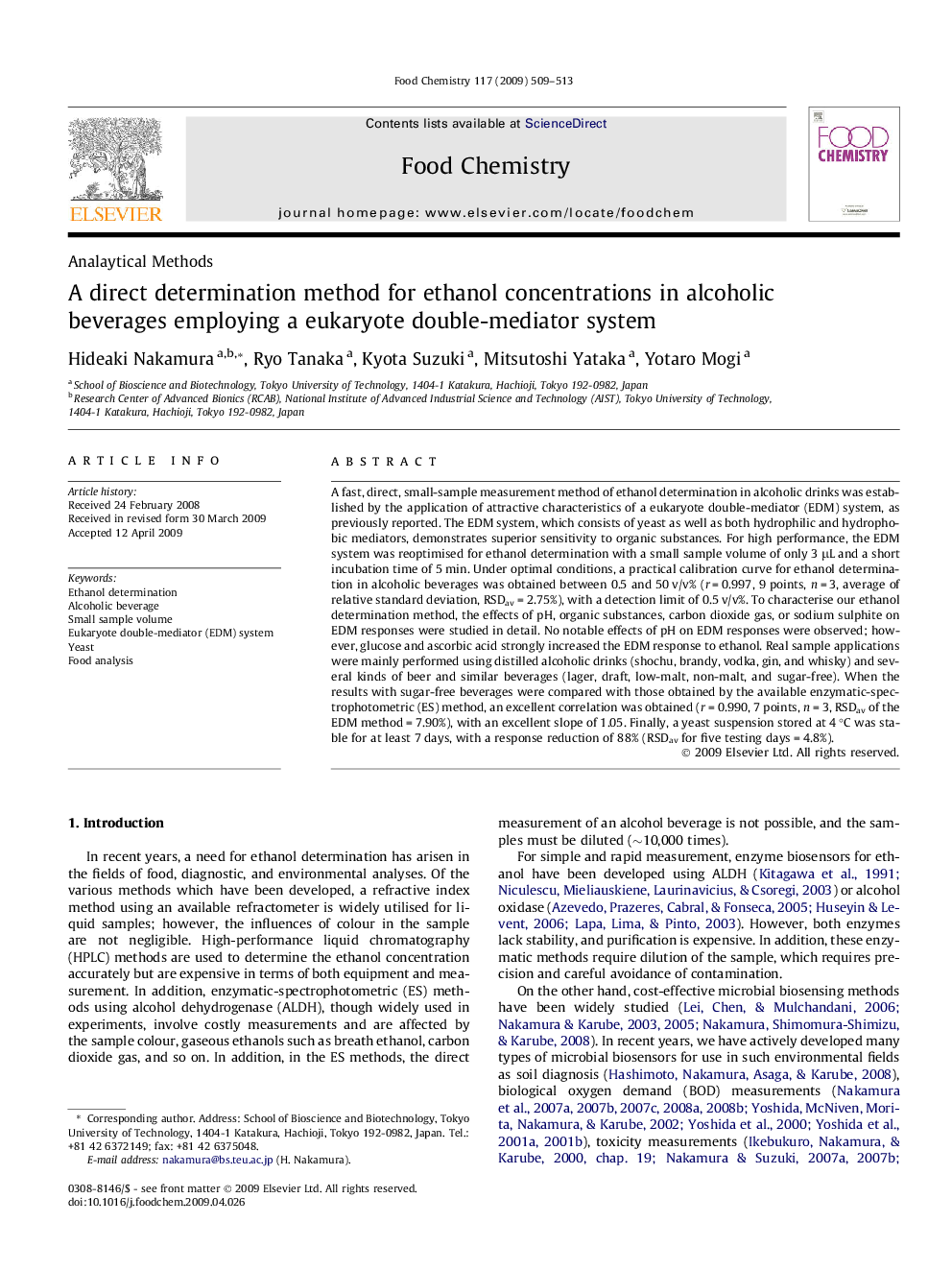| Article ID | Journal | Published Year | Pages | File Type |
|---|---|---|---|---|
| 1188286 | Food Chemistry | 2009 | 5 Pages |
A fast, direct, small-sample measurement method of ethanol determination in alcoholic drinks was established by the application of attractive characteristics of a eukaryote double-mediator (EDM) system, as previously reported. The EDM system, which consists of yeast as well as both hydrophilic and hydrophobic mediators, demonstrates superior sensitivity to organic substances. For high performance, the EDM system was reoptimised for ethanol determination with a small sample volume of only 3 μL and a short incubation time of 5 min. Under optimal conditions, a practical calibration curve for ethanol determination in alcoholic beverages was obtained between 0.5 and 50 v/v% (r = 0.997, 9 points, n = 3, average of relative standard deviation, RSDav = 2.75%), with a detection limit of 0.5 v/v%. To characterise our ethanol determination method, the effects of pH, organic substances, carbon dioxide gas, or sodium sulphite on EDM responses were studied in detail. No notable effects of pH on EDM responses were observed; however, glucose and ascorbic acid strongly increased the EDM response to ethanol. Real sample applications were mainly performed using distilled alcoholic drinks (shochu, brandy, vodka, gin, and whisky) and several kinds of beer and similar beverages (lager, draft, low-malt, non-malt, and sugar-free). When the results with sugar-free beverages were compared with those obtained by the available enzymatic-spectrophotometric (ES) method, an excellent correlation was obtained (r = 0.990, 7 points, n = 3, RSDav of the EDM method = 7.90%), with an excellent slope of 1.05. Finally, a yeast suspension stored at 4 °C was stable for at least 7 days, with a response reduction of 88% (RSDav for five testing days = 4.8%).
